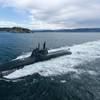Maritime Responder: Obligations and Liability
It will surprise very few mariners or maritime executives to learn that legal issues pertaining to the Deepwater Horizon spill are front and center with maritime lawyers these days. In the course of developing an agenda for the upcoming meeting in Houston of the Maritime Law Association, the issues surrounding liability and/or immunity of spill response contractors has emerged. One driver for the discussion is the fact that several such contractors have found themselves targets for claims brought by individuals, businesses and municipalities affected by this spill, despite the fact that such responders have a degree of immunity under the terms of the Federal Water Pollution Control Act, as amended by the Water Pollution Act of 1990. But there are other federal statutes and general maritime law decisions which bear upon the issues of the duty to respond to maritime casualties and the potential liability exposure for such responders.
Mariners have long understood that a moral, if not legal, obligation is upon them to render assistance to persons in peril at sea. The general rubric is that the master or person in charge of a vessel is obliged to assist others in danger unless rendering such assistance would place his/her own vessel, crew or passengers in serious danger. This notion was ultimately placed into positive federal law by Congress, and is now found at 46 U.S.C. §2304(a). That statute sets up a criminal penalty of $1,000 or imprisonment for not more than two years for its violation. The duty does not extend to saving property, but to saving “any individual found at sea in danger of being lost.” A companion statute pertains to the obligation of master or individual in charge of a vessel which has been involved in a marine casualty. 46 U.S.C. §2303. Again, the obligation is phrased in terms of rendering assistance to “each individual” affected by the marine casualty. A criminal penalty of similar size applies and the vessel is potentially liable in rem to the United States Government for the fine. Interestingly, Section 2304 contains an exception for vessels of war or vessels owned by the United States Government dedicated to public service. Therefore, U.S. Naval vessels or Coast Guard vessels are obliged to render assistance to individuals only when the U.S. vessels have been involved in a marine casualty that put the individuals at risk. (Other general maritime law rules and statutes apply to the Coast Guard’s obligation to undertake search and rescue missions, of course, there being a well-recognized rule known as the “discretionary function” doctrine.)
The law has developed that those who undertake to render assistance must exercise reasonable care and acceptable seamanship in doing so, or else suffer liability for the aggravation or excess harm that they cause to the individuals or property. One of the two federal statutes cited above contains a specific “Good Samaritan” provision which provides that those who render assistance shall not be found liable for the damage caused by their efforts unless they have failed to exercise reasonable care. The immunity provided by such a law is illusory, in my estimation, because the general maritime law would never impose liability upon any person unless they either breached some contractual obligation or were determined to have been negligent.
The so-called “discretionary function” doctrine applicable to government activities alluded to above contains a similar corollary rule. In other words, if the government decides in the exercise of its discretion to take on a function such as rendering assistance to individuals or property, that agency is obliged to exercise good seamanship and act as would a reasonably prudent person under similar circumstances. Numerous reported cases exist in which the Coast Guard has been sued for negligently causing personal injury or property damage during the course of their rescue operations.
There are some cases that have determined that rather than a “reasonable seaman” standard, maritime law requires proof of gross negligence or willful misconduct in order to render a responder liable for consequent harm. The language of 46 U.S.C. §2303(c) would seem to have contradicted that at least within the spheres of its jurisdictional influence.
Some readers may recognize an interplay between the law of salvage and the rules regarding the obligations and liabilities of responders. The ancient maritime codes provided motivation for strangers to render assistance to persons or vessels in danger at sea by allowing them to sue for an award of some appropriate percentage of the value of the property saved. So-called “pure” salvage requires not only that the salvage effort be successful, but that it be undertaken on a strictly voluntary basis. The law is clear, however, that the moral or legal obligation to render assistance to persons in peril at sea does not make a salvor’s efforts non-voluntary. In other words, those who act under compulsion of the federal statutes, are deemed to be volunteers as to salvage unless there is some other particular legal or contractual duty that pre-existed, such as the duty of a master to take care of his own crewmen or passengers or the duty of a towing contractor to safeguard a vessel being towed. A salvage contract such as the famous Lloyd’s Open Form obviously does not nullify the right to collect a salvage award but merely supplants the voluntary element with an agreement between the parties. Once again, however, a salvor has an obligation to render his assistance in a reasonable seaman-like manner or risk liability for harm caused by his efforts to persons or property.
Salvage decisions have taken into account the extra damage caused by the salvor’s efforts in determining the nature or the extent of an award. An admiralty court has broad discretion within certain recognized parameters to determine the size of an award and to therefore either diminish or do away entirely with the right to an award depending upon the level of negligence and harm caused by the salvor. The types of damages that could be awarded against a negligent salvor would include excess harm to the vessel, enhanced wreck removal expenses and expenses resulting from enhanced or aggravated pollution.
As mentioned above, the Federal Water Pollution Control Act as amended by OPA 90 contains a specific provision providing immunity to oil spill contractors and other responders. Under the terms of that statute, it is clear that unless a responder causes damage by virtue of its gross negligence or willful misconduct, it should not be held liable for penalties or pollution damages.
The very practical questions of course are “what is negligence, what is gross negligence and what is the difference?” A senior partner once told me that the difference between plain negligence and gross negligence, never gave a claimant’s attorney much pause. If the facts of the case were such that the extra harm was somehow actually caused by the activities of the responder, the claim would be filed. The responder would end up incurring attorney’s fees and its underwriters/insurers would be pressured for settlement on the risk that a judge might consider the conduct to have risen to a degree of negligence sufficient to overwhelm the immunity. Such was certainly true in the Deepwater Horizon situation where one of BP’s primary contracted response companies despite the immunity provided by the terms of OPA, found itself sued in one case after another. It has taken some amount of legal effort and expense to establish to the satisfaction of claimant’s counsel that there was no gross negligence involved in that contractor’s operations, and not all counsel have as of yet been convinced. It is in the nature of law practice for there to be a good deal of inertia established once a claim is committed to paper. A claimant’s lawyer had an obligation to make sure his allegations were well-founded to begin with and finds himself in an embarrassing position to explain the retraction of the claim to the court and his client.
Clearly, the maritime law has seen fit to motivate and (under certain circumstances) even to compel mariners to come to the aid of others in distress at sea. No such obligation exists if the responder would be putting his own crew, passengers or vessel in serious danger. But, liability will ensue and salvage awards could be lost or diminished if the responder/salvor does not undertake the assistance effort in a reasonable and seaman-like manner.
(Courtesy of the November 2010 edition of Maritime Reporter & Engineering News)










